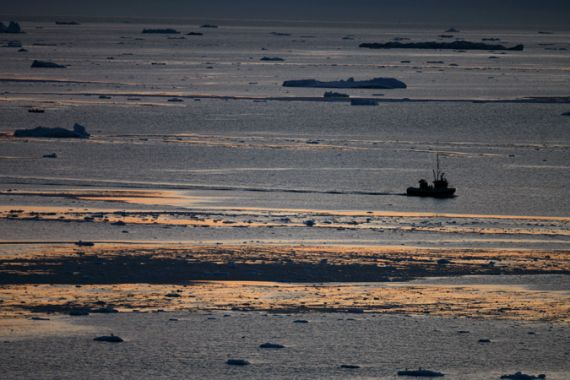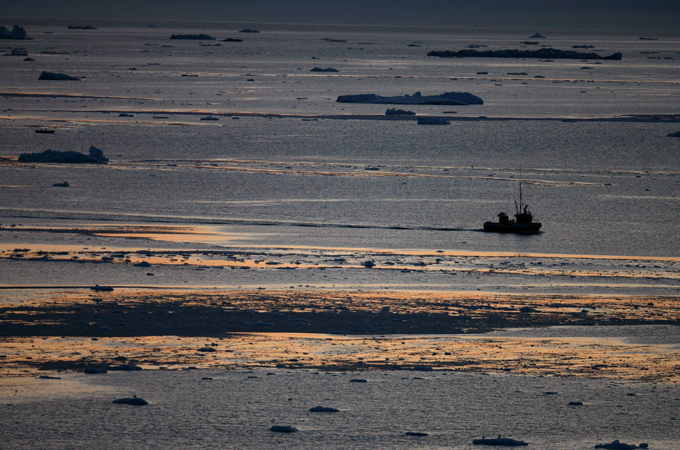Oceans suffer in a warmer world
The economic cost of increasing ocean temperatures

 |
| A boat sails between icebergs in Jacobshavn Fjord, Greenland [GALLO/GETTY] |
If global warming accelerates at the pace some climate scientists fear, then by 2100, damage to the world’s oceans could cost $2 trillion dollars a year.
Research by the Stockholm Environment Institute (S.E.I) found that without significant efforts to curb rising greenhouse gas emissions, 0.37 percent of the world’s Gross Domestic Product would be lost.
Keep reading
list of 4 itemsCould shipping containers be the answer to Ghana’s housing crisis?
Thousands protest against over-tourism in Spain’s Canary Islands
Holding Up the Sky: Saving the Indigenous Yanomami tribe in Brazil’s Amazon
The study quantified the cost of destroyed coral reefs, depletion of fish stocks, sea level rise, marine pollution and more intense tropical cyclones.
It found that a four degree Celsius rise in global temperatures would result in vast oxygen-depleted dead zones
The biggest cost was considered to be to tourism, estimated at $639 billion.
On a more positive note, the study concluded that limiting global warming to 2.2 degrees Celsius by the end of the century, would reduce the total cost by some $1.4 trillion.
S.E.I. also recommended that the United Nations appoints a High Commissioner for Oceans. The aim of the post would be to ensure that the oceans were incorporated into global economic policy. The Commissioner would also ensure that contingincies would be made for likely one to two metre sea level rises.
The impact of global warming on the oceans is already considerable. The depletion of summer sea ice in the Arctic Ocean has led some experts to suggest that the region may be free of ice during the summer months within a few years.
The warming of the Arctic has led to researchers updating HadCRUT, one of three major global temperature records. HadCRUT is compiled by the UK Met Office’s Hadley Centre and the Climate Research Unit (Cru) at the University of East Anglia.
The update has resulted in researchers listing 2010, rather than 1998, as the warmest year on record.
Professor Phil Jones of Cru explained why it was necessary to amend the data,”HadCRUT is underpinned by observations and we’ve previously been clear it may not be fully capturing changes in the Arctic because we have had so little data from the area.
“For the latest version, we have included observations from more than 400 stations across the Arctic, Russia and Canada.”
Cru confirm the increase in global temperatures since 1900 at 0.75 degrees Celsius.